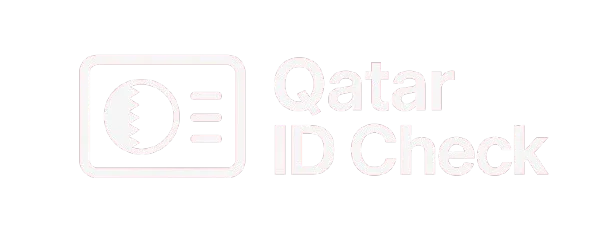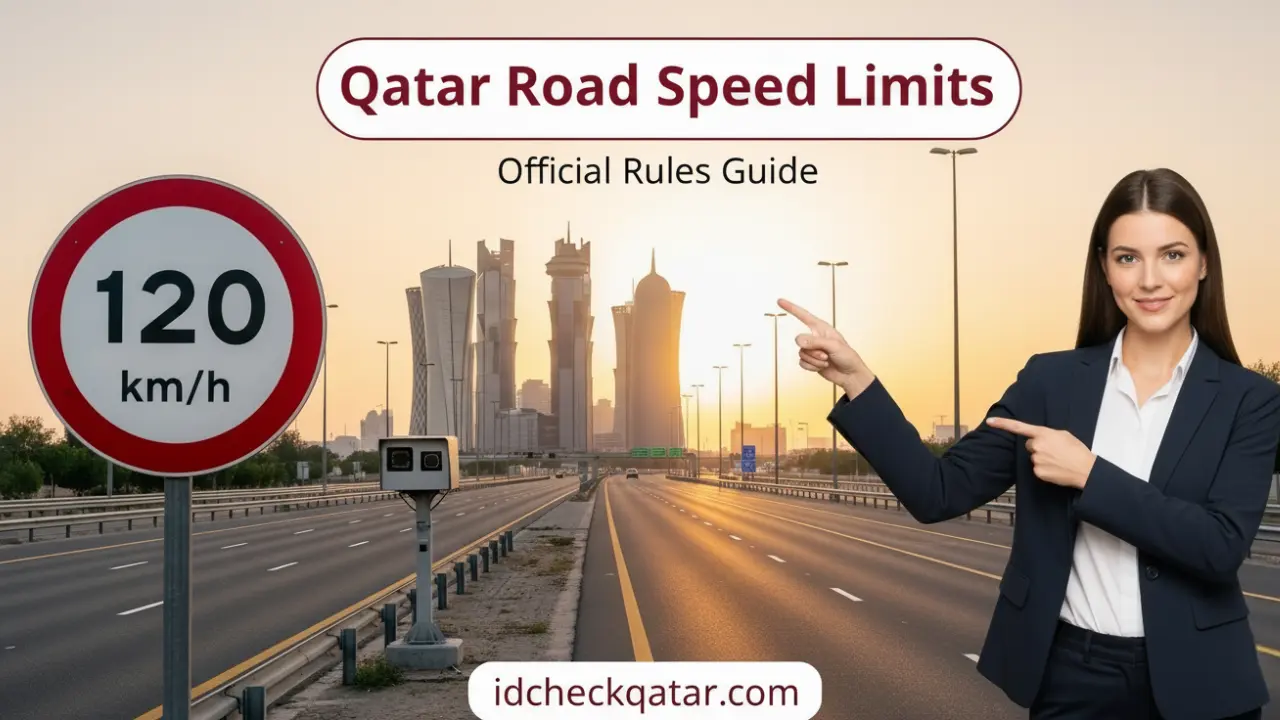Qatar Road Speed Limits 2026 | Don’t Risk Costly Fines
Qatar road speed limits vary by road type. In 2026, limits are generally set at 60–80 km/h inside cities, 100 km/h on main highways, and up to 120 km/h on expressways. Following these limits helps drivers avoid fines, black points, and ensures safer travel.
Driving requires strict awareness of Qatar road speed limits. The Ministry of Interior (MOI) enforces these rules to improve road safety and reduce accidents. Knowing the correct limits is essential not only to avoid costly penalties but also to maintain safe driving practices.
If you are new to Qatar or even a long-time resident, this guide provides the latest information about road speed limits in 2026, how they are applied, and why they matter. For complete ID and traffic-related services, you can also check the Qatar ID status and the official Qatar traffic violations guide.
Importance of Qatar Road Speed Limits
Speed limits in Qatar are not just about avoiding fines. They are designed to protect lives, ensure traffic flows smoothly, and reduce accident risks. With rapid development and busy roads, speed monitoring has become stricter.
- Speed limits are linked to road design and traffic density.
- Cameras and radars are installed across highways and city areas.
- Speed enforcement helps Qatar meet its Vision 2030 road safety goals.
Road speed limits in Qatar protect lives, reduce traffic accidents, and support smoother road flow.
General Road Speed Limits in Qatar
Here is an overview of the commonly applied speed limits across Qatar as of 2026.
Table of General Speed Limits in Qatar:
| Road Type | Speed Limit (km/h) |
|---|---|
| Residential & Local Roads | 40–60 km/h |
| City Main Roads | 60–80 km/h |
| Main Highways | 100 km/h |
| Expressways & Long Routes | 120 km/h |
| School Zones | 30–40 km/h |
Drivers must always check road signs, as speed limits may change depending on construction zones or traffic control measures.
Qatar city roads are limited to 60–80 km/h, highways around 100 km/h, and expressways up to 120 km/h.
School Zone and Special Area Speed Limits
School zones in Qatar have some of the strictest rules. During school hours, speed limits drop to protect children.
- Typical school zone speed limit: 30–40 km/h.
- Flashing warning lights and signs mark these areas.
- Penalties for speeding in these zones are higher due to safety concerns.
Construction zones also have reduced limits, often 40–60 km/h, depending on the site.
In school and construction zones, Qatar enforces reduced speed limits of 30–60 km/h for maximum safety.
Qatar Expressway Speed Limits
Qatar’s expressways, including Dukhan Highway and Al Shamal Road, allow higher speeds but are tightly monitored.
- Standard expressway limit: 120 km/h.
- Some sections allow 100–110 km/h depending on traffic conditions.
- Digital signboards often update speed limits dynamically.
Drivers should always watch for radar warnings and variable signs.
Expressways in Qatar have limits up to 120 km/h, but some sections may reduce to 100–110 km/h.
City Road Speed Limits in Qatar
Inside Doha and other urban areas, speed limits are much lower due to congestion and pedestrian activity.
- Inner city and Corniche areas: 60 km/h.
- Wider city avenues: 70–80 km/h.
- Local residential streets: 40–50 km/h.
Traffic police monitor these areas using both fixed and mobile radars.
City speed limits in Doha range from 40 km/h in residential streets to 80 km/h on major roads.
Monitoring and Enforcement of Speed Limits
Qatar has one of the most advanced traffic monitoring systems in the region.
- Fixed speed cameras are positioned on major roads.
- Mobile patrol cars use radar guns for monitoring.
- Metrash app records violations and notifies drivers instantly.
Drivers can also check their record through the MOI portal. For detailed steps, see how to check Qatar traffic violations online.
Qatar enforces speed limits using fixed cameras, mobile radars, and instant reporting through the Metrash app.
Speed Limit Signs and Road Markings
Understanding road signs is critical to following the law.
- Speed limit signs are circular with red borders.
- Dynamic digital boards update speed limits on highways.
- Road markings may include “SLOW” warnings near schools and crossings.
For a full guide on signs, review Qatar’s traffic signs explained in detail.
Qatar’s speed limits are displayed through red-bordered signs and dynamic boards along roads.
Penalties for Exceeding Speed Limits in Qatar
While this article focuses on limits, it’s important to know the consequences of crossing them.
- Over-speeding fines start at QAR 500 and can go up to QAR 10,000.
- Black points range from 4 to 6 depending on the level of violation.
- Repeat offenders face higher penalties and possible license suspension.
Exceeding speed limits in Qatar leads to fines of QAR 500–10,000 and black points. For full details, see Qatar’s speeding fines guide.
Tips for Staying Within Speed Limits
Here are some practical ways to follow Qatar’s speed laws.
- Always check road signs and digital boards.
- Use cruise control on highways to maintain speed.
- Stay aware of school timings and construction areas.
- Keep Metrash app alerts on to monitor fines.
Stay within speed limits by watching road signs, using cruise control, and monitoring your driving via Metrash.
FAQs – Qatar Road Speed Limits
Conclusion
Qatar road speed limits are not just rules, they are essential for safety, smoother travel, and avoiding heavy fines. By knowing the limits for highways, city roads, school zones, and expressways, every driver can stay compliant with MOI regulations and protect themselves from penalties or black points. These limits are closely monitored with cameras and radars, so even small violations can be costly.
Following the official Qatar road speed limits ensures you drive legally, avoid financial penalties, and contribute to road safety for everyone.

